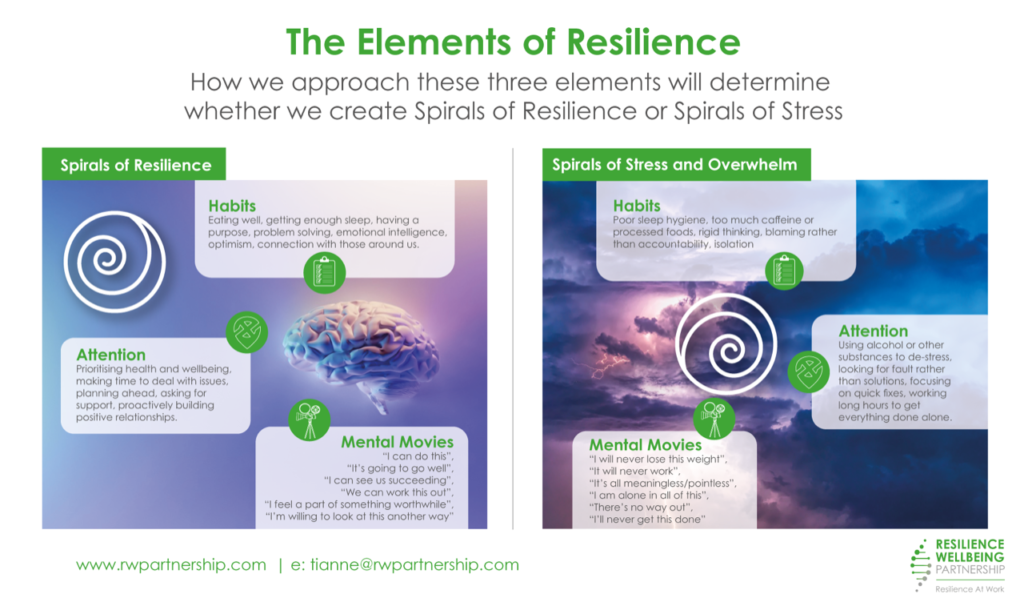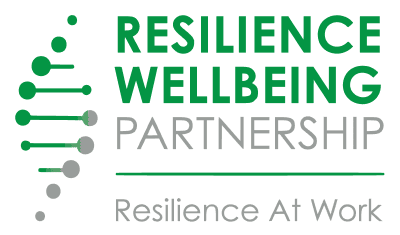What Is Resilience? Your Guide to Facing Life’s Challenges, Adversities, and Crises

Resilience isn’t merely a destination to reach but an ongoing journey woven intricately into our lives. It’s the sum of our behaviours, skills, and beliefs, shaping our response to life’s myriad challenges.
Meaning of resilience
At its core, resilience is the ability to bounce back from setbacks and adversities. It’s the capacity to adapt, recover, and thrive in the face of difficult circumstances, emerging stronger and more capable after enduring hardship. This simple definition of resilience is a good foundation to understand what may be considered a complex topic.
The great news is that we can learn to develop resilience, which can help us better manage stress, develop coping strategies and enhance our problem-solving capabilities.
Introduction
The human experience is layered and nuanced, especially concerning resilience. Countless factors influence how we navigate life’s hurdles: our beliefs about ourselves and the world, the skills we possess, the knowledge we accumulate, and even our subconscious biases. Trying to grasp these elements as distinct concepts can be daunting, prompting a need to break them down into specific domains.
The incredible work of Mind Matters has unveiled six domains that describe what resilience means, and the different elements of resilience: Health, Purpose, Problem-Solving, Perseverance, Composure, and Relationships. Each domain serves as a lens through which we explore the quality of resilience in our lives.
How to Define Resilience
Resilience definition: Resilience embodies an intricate interplay of psychological, emotional, and cognitive strengths. It’s the capacity to not only withstand adversity but to adapt, grow, and thrive in the face of challenges. From psychological research to sociological perspectives, resilience is often described as the ability to bounce back from setbacks and adversity.
What Does the Research Say About Why Resilience Is Important?
Resilience and neuroscience
Neuroscience has offered valuable insights into understanding resilience by exploring the intricate workings of the brain, and shedding light on how resilience is rooted in our neural circuitry.
Studies have shown that resilient individuals exhibit unique patterns of brain activation and connectivity, particularly in regions associated with emotional regulation, decision-making, and stress response.
The brain’s plasticity—the ability to rewire and adapt—plays a pivotal role in resilience. Research indicates that practices such as mindfulness meditation can induce neuroplastic changes, strengthening neural pathways linked to resilience.
Furthermore, neuroscientists emphasise the role of neurotransmitters like dopamine and serotonin in modulating resilience, highlighting the significance of both biological and environmental factors in shaping our resilience levels.
The 6 Domains of Resilience by Mind Matters
Mind Matters’ groundbreaking research – based on the latest research into neuroscience – has delineated six domains of resilient people, each representing a crucial facet of resiliency. This model of resilience is something RWP has embedded into all of our resilience theory and programmes:
- Health: –Health isn’t just the absence of illness; it’s a holistic state encompassing physical, mental, and emotional well-being. Resilience in this domain involves practices that nurture a balanced lifestyle, including exercise, nutrition, sleep, and mindfulness.
- Purpose:- A sense of purpose serves as an anchor in turbulent times. Resilience within this domain stems from aligning actions and decisions with meaningful objectives, fostering optimism, and maintaining a sense of direction despite challenges.
- Problem-Solving:- Resilience in problem-solving revolves around critical thinking, adaptability, and the ability to navigate challenges effectively. It involves analysing situations, seeking solutions, and embracing change as an opportunity for growth.
- Perseverance:- Perseverance embodies resilience in the face of adversity. It’s the determination to persist despite setbacks, cultivating a growth mindset that sees challenges as stepping stones rather than obstacles.
- Composure:- Maintaining composure amidst chaos is a hallmark of resilience. Practices such as mindfulness, stress management, and emotional regulation empower individuals to remain centered and composed in challenging situations.
- Relationships:- Resilience in relationships involves nurturing strong social connections, effective communication, and seeking support when needed. Building and sustaining healthy relationships contribute significantly to overall resilience.
These domains are helpful for us to understand where we are on the resilience scale and how we can keep reviewing our resilience over time.
What Is Emotional Resilience?
What resilience doesn’t mean
Resilience is not about false positivity or denying the gravity of challenges. It doesn’t demand constant strength without acknowledging vulnerabilities or difficulties.
True resilience isn’t found in suppressing emotions or pretending problems don’t exist; rather, it’s the courageous act of facing adversity, acknowledging emotions, seeking support when needed, and navigating challenges with authenticity and adaptability.
Cultivating resilience is about finding strength in vulnerability and embracing the journey toward growth and recovery.
The Significance of Self-Awareness in Psychological Resilience
Self-awareness serves as the cornerstone of one’s resilience across these domains. It involves recognising our beliefs, emotions, strengths, and limitations within each domain. Strategies such as meditation, maintaining healthy relationships, adequate sleep, nutrition, and an optimistic approach aid in enhancing self-awareness, thereby fortifying coping skills and resilience.
Mental Health and Resilience
The Impact of Low Resilience
When we experience stress and adversity due to life’s experiences, low resilience can manifest across the six domains, affecting various facets of life:
- Health:- Insufficient resilience in health can lead to increased stress, compromised immune function, and challenges in maintaining a healthy lifestyle.
- Purpose:- A lack of resilience in purpose may result in feelings of aimlessness, a loss of direction, or difficulty in finding motivation during challenging times.
- Problem-Solving:- Inadequate resilience in problem-solving might lead to feeling overwhelmed by challenges, an inability to adapt to change, or difficulty in finding effective solutions.
- Perseverance:- Low resilience in perseverance may result in giving up easily, feeling defeated by setbacks, or an inability to see opportunities for growth.
- Composure:- Insufficient resilience in composure could lead to heightened stress, emotional volatility, and difficulties in managing emotions during stressful situations.
- Relationships:- Lack of resilience in relationships may result in strained connections, ineffective communication, or a limited support network during challenging times.
How Do I Train Myself to Be More Resilient?
Strategies to Build and Improve Resilience
Mind Matters research shows we can enhance our ability to adapt, and develop our mental resilience. Building resilience involves fostering strengths within each domain:
Health
- Mindful Practices: Incorporate meditation or mindfulness exercises into daily routines for your mental wellbeing.
- Balanced Lifestyle: Prioritise sleep, nutrition, and physical activity for overall wellbeing and our physical resilience.
Purpose
- Goal Setting: Define and pursue goals aligned with personal values and aspirations.
- Cultivate Optimism: Foster a positive mindset and outlook on life, seeking opportunity in challenges.
Problem-Solving
- Adaptability: Embrace change as a chance for growth and learning.
- Critical Thinking: Develop analytical skills to assess and tackle problems effectively.
Perseverance
- Resilience Mindset: Cultivate a growth mindset, viewing setbacks as opportunities for development.
- Persistence: Persist through challenges, maintaining focus on long-term goals.
Composure
- Stress Management: Employ stress-relieving techniques like deep breathing or grounding exercises. These techniques can help with depression and anxiety, and help develop resilience.
- Emotional Regulation: Practice techniques to maintain emotional balance during stressful situations.
Relationships
- Effective Communication: Build strong communication skills to navigate relationships.
- Social Support: Nurture meaningful connections for emotional support and resilience.
Examples of Resilience
The Role of Resilience in Various Aspects of Life:-
Work and Career
In the workplace, resilience manifests in adapting to change, handling work pressures, and bouncing back from setbacks. In today’s fast paced working environment, many companies are looking to help their employees become more resilience. It is important to bounce back quickly from challenges, and we can see the outcome of successfully adapting in companies who have thrived throughout the pandemic, for example. The success of these organisations shows how being agile and successfully adapting to difficult or challenging situations can make a real difference. Employees with strong resilience skills tend to navigate challenges more effectively, maintain productivity during stressful periods, and contribute positively to team dynamics.
Relationships and Social Interactions
Resilience within relationships involves effective communication, conflict resolution, and providing support during tough times. Building resilience in this domain strengthens bonds, fosters empathy, and cultivates a reliable support system.
Mental Health and Wellbeing
Resilience plays a pivotal role in mental health by bolstering coping mechanisms, reducing stress, and enhancing emotional wellbeing. Individuals with higher resilience tend to exhibit greater mental fortitude, managing anxiety and depression more effectively.
Celebrities Who Have Shown – and Can Teach Resilience
- Oprah Winfrey: From a challenging childhood marked by poverty and trauma, Oprah Winfrey emerged as a media mogul, breaking barriers and overcoming personal hardships. Her resilience is evident in her unwavering determination, resilience, and commitment to empowering others through her talk show, media network, and philanthropic endeavors;
- Serena Williams: Throughout her career, Serena Williams faced numerous obstacles, including injuries, health issues, and societal pressures. Despite setbacks and challenges, she showcased unwavering determination, resilience, and an indomitable spirit on and off the tennis court. Her ability to overcome adversity and consistently excel in her sport has solidified her as one of the greatest athletes of all time.
- Eminem (Marshall Mathers): Eminem battled through a tumultuous upbringing, poverty, and personal struggles with addiction and mental health issues. Despite facing criticism and setbacks, he used his artistry and music as a means of expressing his hardships and overcoming adversity. Eminem’s resilience and authenticity in sharing his struggles through his music have resonated with millions worldwide, earning him critical acclaim and success in the music industry.
Other Stories of Resilience
- The Story of Malala Yousafzai: Malala, a Pakistani education activist, survived a Taliban assassination attempt at the age of 15 for advocating girls’ education. Despite the attack and ongoing threats, Malala showed remarkable resilience. She continued her activism, eventually becoming the youngest Nobel Prize laureate for her advocacy work promoting education for girls worldwide.
- Nick Vujicic’s Journey: Born without arms and legs, Nick Vujicic faced immense challenges and discrimination growing up. However, he embraced his differences and used his experiences to inspire others. He became a motivational speaker, author, and founder of a non-profit organization, sharing his story of resilience, hope, and overcoming adversity worldwide.
- Nelson Mandela’s Imprisonment: Nelson Mandela, the anti-apartheid revolutionary and former President of South Africa, spent 27 years in prison for his fight against racial segregation. Despite enduring harsh conditions, Mandela maintained his resilience and commitment to justice and reconciliation. His unwavering determination and ability to forgive his captors played a pivotal role in South Africa’s transition to democracy.
Final Reflections on Resilience and Health
Resilience can be understood as a dynamic force that underpins our ability to navigate life’s challenges, empowering us to adapt, grow, and thrive in the face of adversity. It is useful in schools and community, as well as for today’s pressurised work environments to foster a sense of control and to offer a sense of meaning. By integrating Mind Matters’ domains into our programmes, we empower individuals and communities to strengthen their resilience across various aspects of life.
Editorial Sources and Fact-Checking
Sources and References
- Mind Matters: Research on the Six Domains of Resilience
- Psychological Science Journal: Neuroscientific Insights into Resilience
- Resilience and Mental Health Studies –
Fact-Checking and Verification
At Resilience Wellbeing Partnership, we uphold the highest standards of accuracy and integrity in our content. The information presented in this article has been thoroughly fact-checked and vetted through reputable sources, research studies, and expert opinions within the field of resilience, psychology, and related disciplines.
Our commitment to delivering reliable and verified information ensures the credibility and authenticity of the content provided to our audience.





